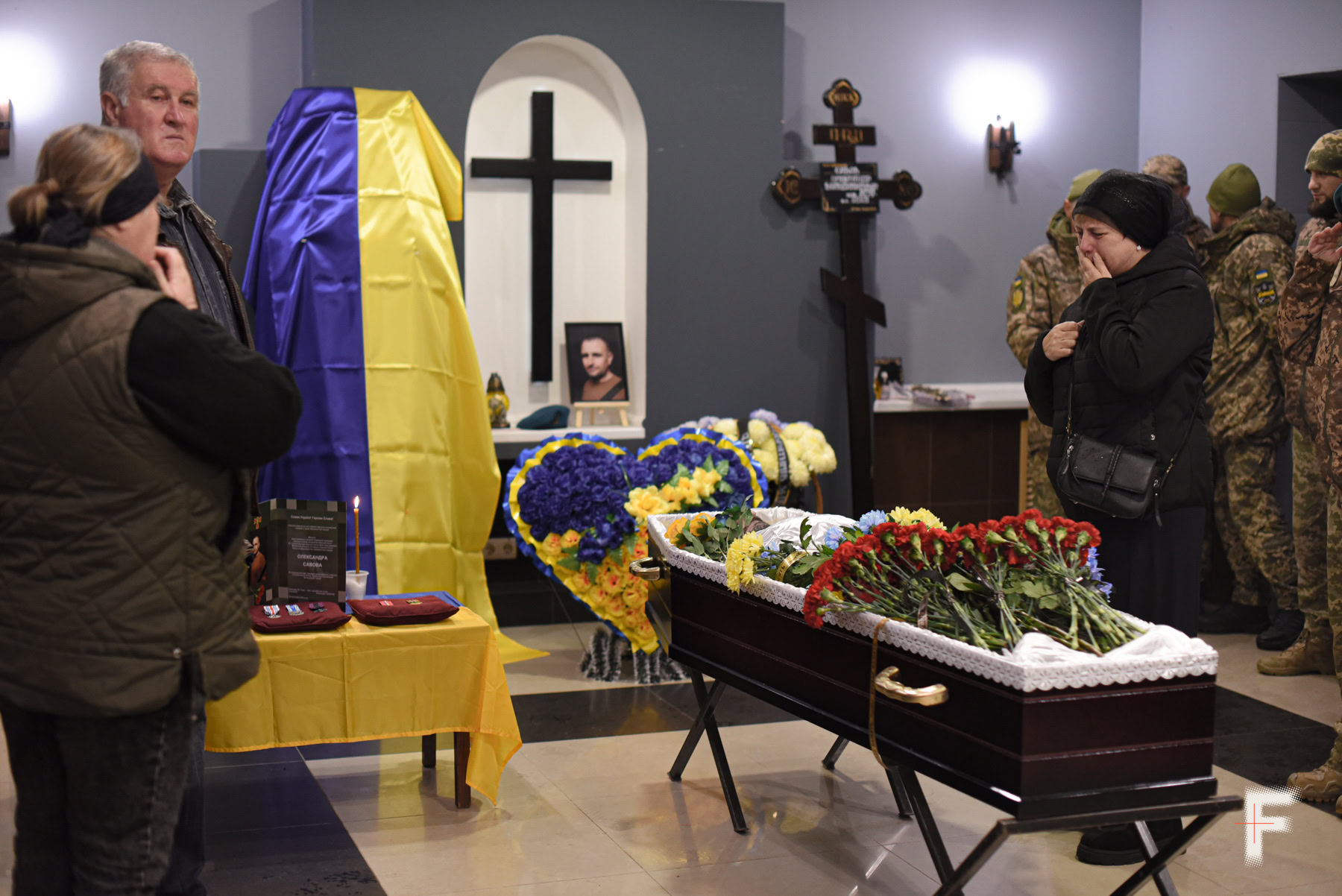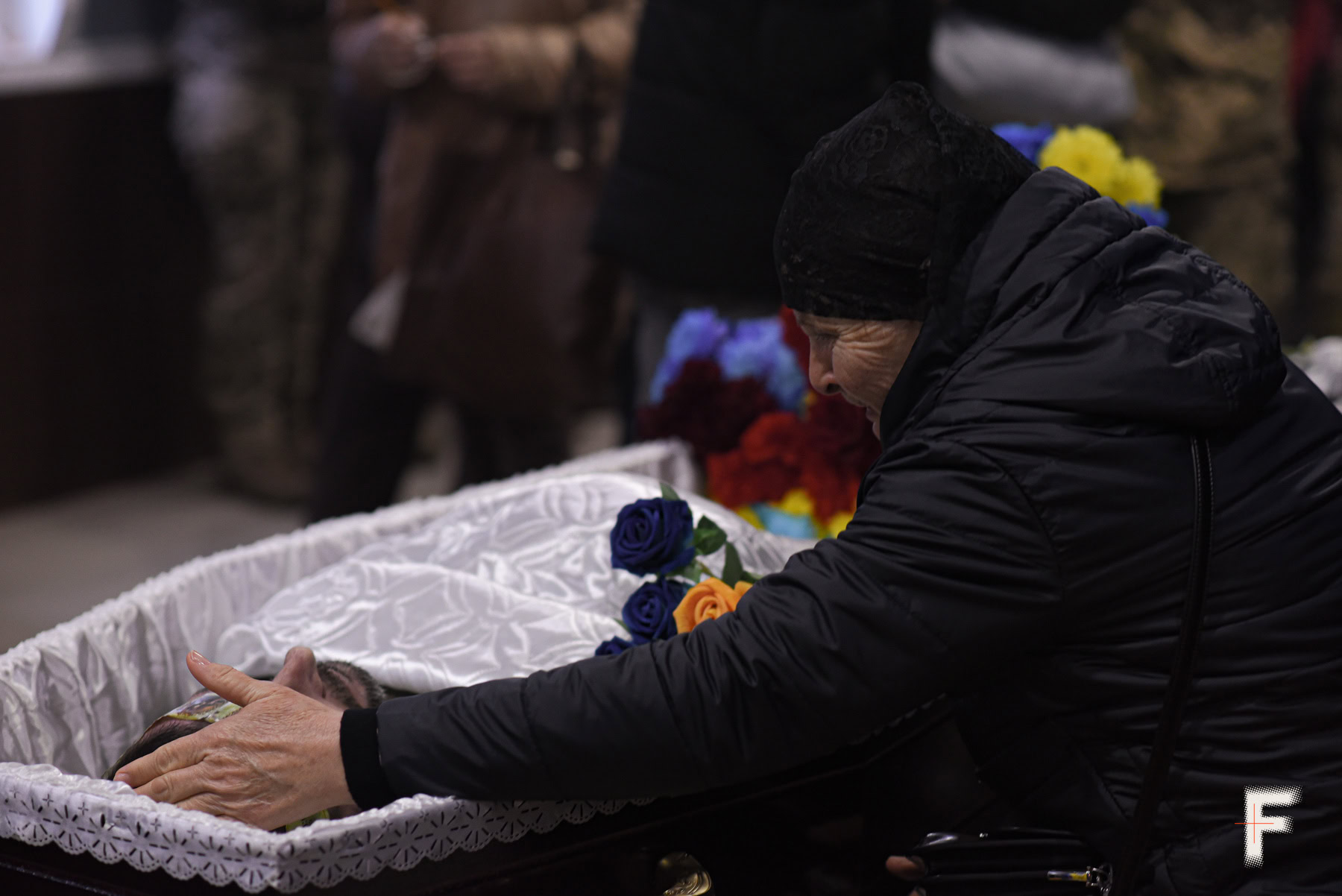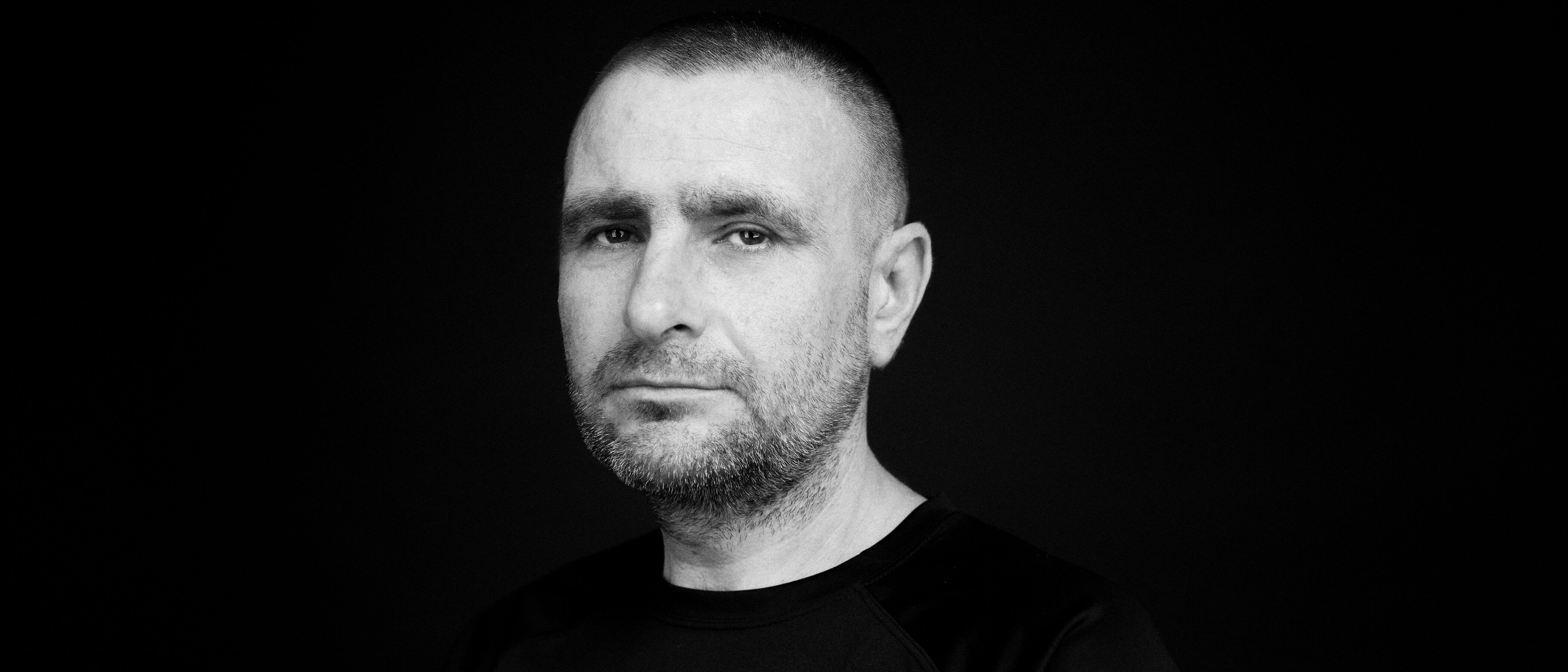

“Captivity kills even after release”: Torture aftereffects stopped the heart of Mariupol defender Oleksandr Savov
After returning from captivity, he spent months fighting the consequences of Russian abuse – broken ribs, ulcers and other injuries. He also struggled with nightmares, fear of silence and recurring memories of what he had endured. On Nov. 16, 2025, the heart of 36th Marine Brigade serviceman Oleksandr Savov stopped. His daughter, Anastasiia Savova, spoke to Frontliner reporters, revealing the causes of his death, as captivity can kill even at home.
“Captivity kills even after release,” Anastasiia Savova wrote on Nov. 16, 2025, after her father passed away.
Oleksandr spent two years and 10 months in Russian captivity after leaving Azovstal in encircled Mariupol. He returned home in March 2025, but the consequences of torture and chronic illness proved stronger. What had not broken him at the Taganrog pretrial detention center, or a penal colony in the Kursk region, Olenivka and Mordovia ultimately took his life after his return.
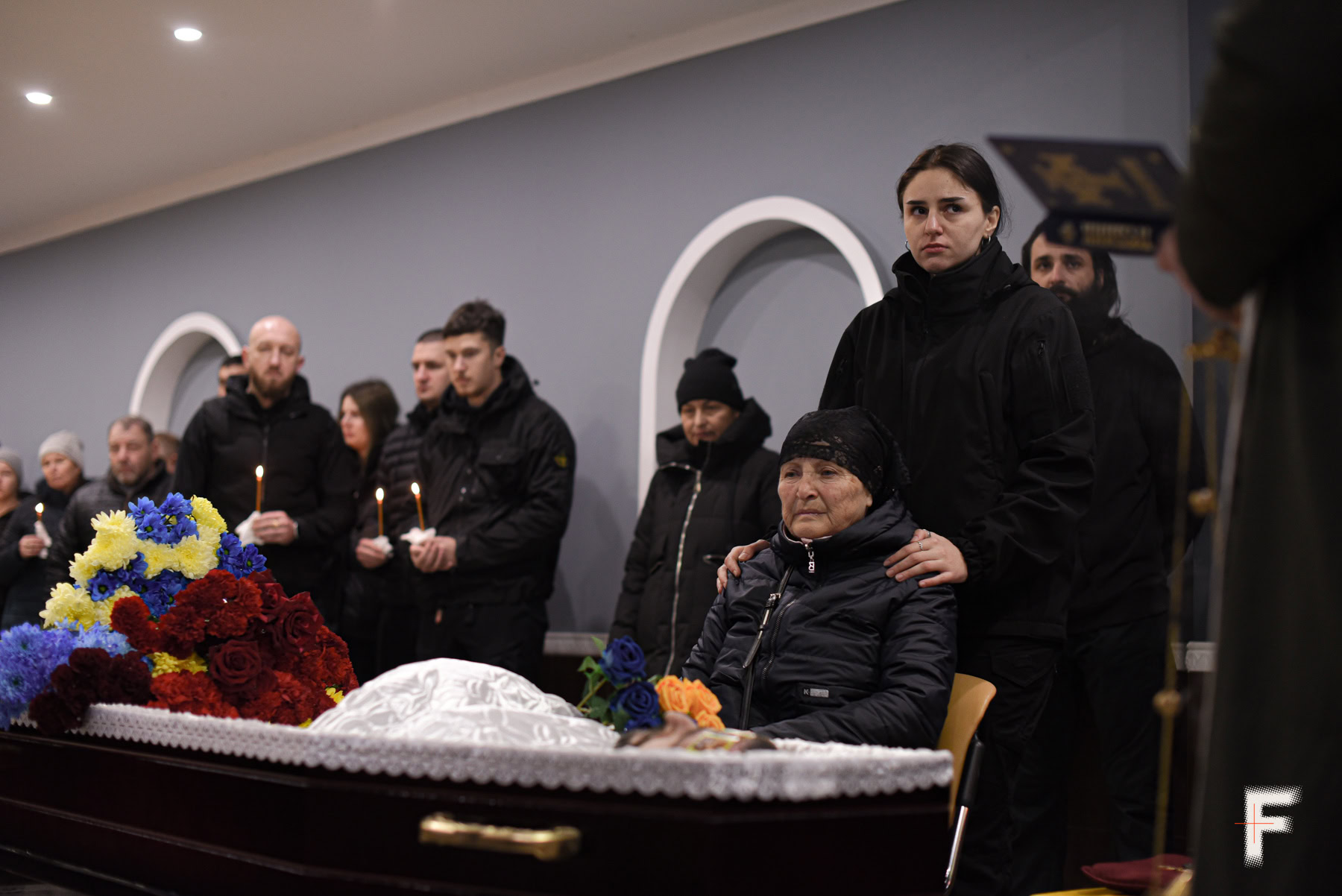

We may have brought him home physically, but part of his soul remained there.
“His mental state was devastated after the return”, his daughter, Anastasiia, says, “In recent months he felt uneasy whenever someone stood behind him, even in a line. During air raids and missile attacks he couldn’t sleep. He often complained about nightmares about captivity. We may have brought him home physically, but part of his soul remained there.”
Why the Marine’s heart stopped
After the release, Oleksandr spent most of his time in hospitals and rehabilitation centers. He treated ulcers that opened while in custody, restored knocked-out teeth, healed broken ribs, and addressed the effects of chronic exhaustion.
His psychological recovery became a separate struggle. Silence frightened him more than any sound. He couldn’t sit still in lines at medical facilities and paced the corridor nervously, as if waiting for another inspection. Anxiety attacks struck suddenly. To cope with his thoughts, Oleksandr kept a notebook on Anastasiia’s advice, where he documented memories and experiences from captivity.
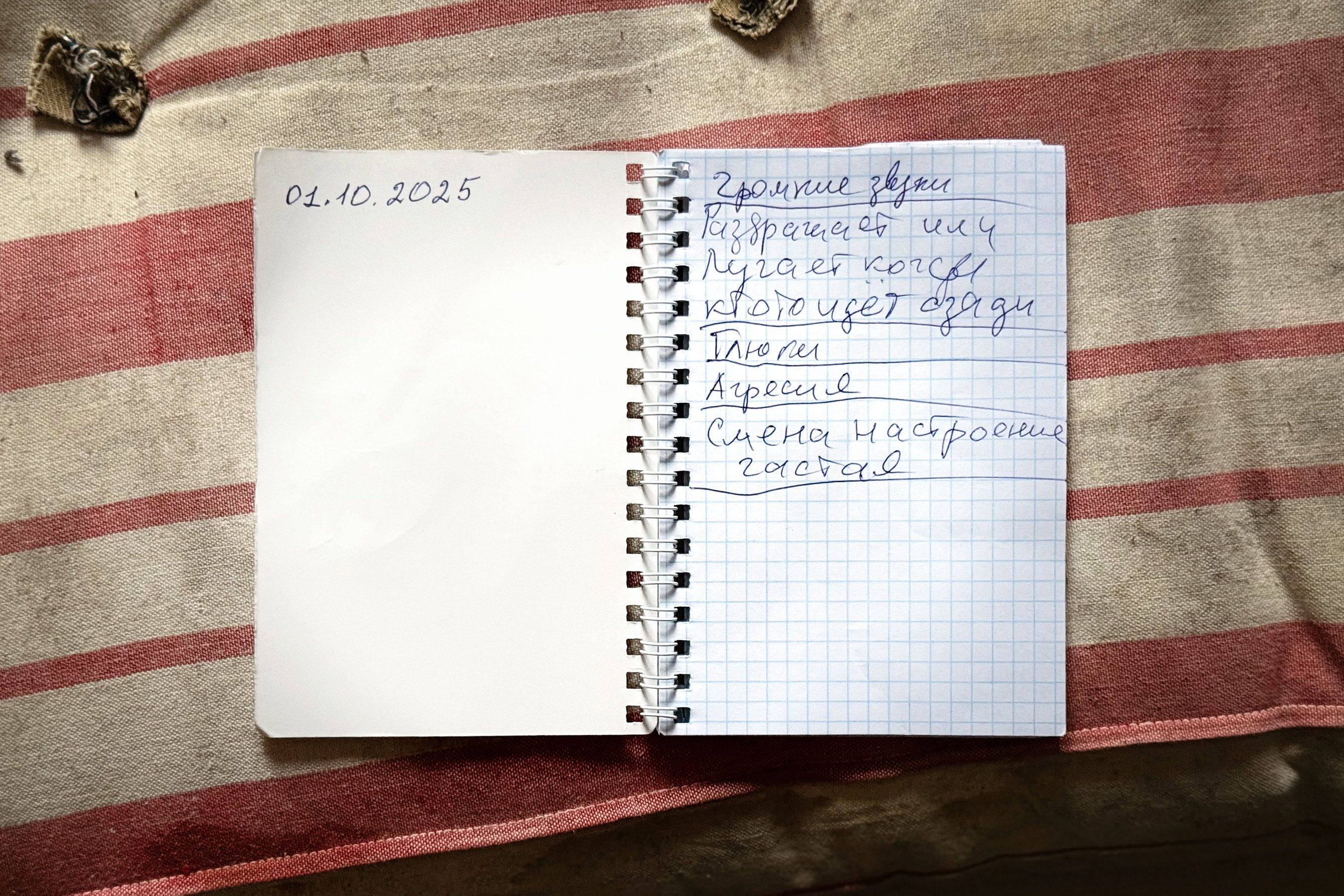

He went through so much and provided vital testimony to our security services.
“We documented his story for the International Criminal Court so the world would officially learn about the horrors of Russian torture chambers,” Anastasia says, “I want my father’s memory to live on. He went through so much and provided vital testimony to our security services.”
Doctors listed heart failure as the cause of death. Savov died in his apartment in Kyiv, where he had lived after his release. His body was transported with military honors to Mykolaiv, where the Marine’s family had previously lived.
Captivity changed both father and daughter
In 2022, Anastasiia could not yet imagine how her father’s imprisonment would reshape her own life. That year, she founded a support community for families of captured Marines.
My father’s captivity became part of my life.
“It will stay with me forever. It’s a trauma I’ll pass on to my children. A story I want the world to hear,” she said. “While my father was in captivity, he didn’t know that I was there with him in a way. Now I carry everything he endured – his pain, his injuries, his suffering.”
Neither her father’s return nor his death stopped Anastasiia from supporting the families facing similar struggles. She continued to document every story, answer dozens of calls and guide the families through communication with the institutions.
When staying silent is impossible
Despite recommendations from Ukraine’s Coordination Headquarters not to disclose details about conditions in captivity, Anastasiia never hesitated to speak about her father’s experience and encouraged him to do the same. She believes public attention can, at least temporarily, curb some of the abuses in Russian detention facilities.
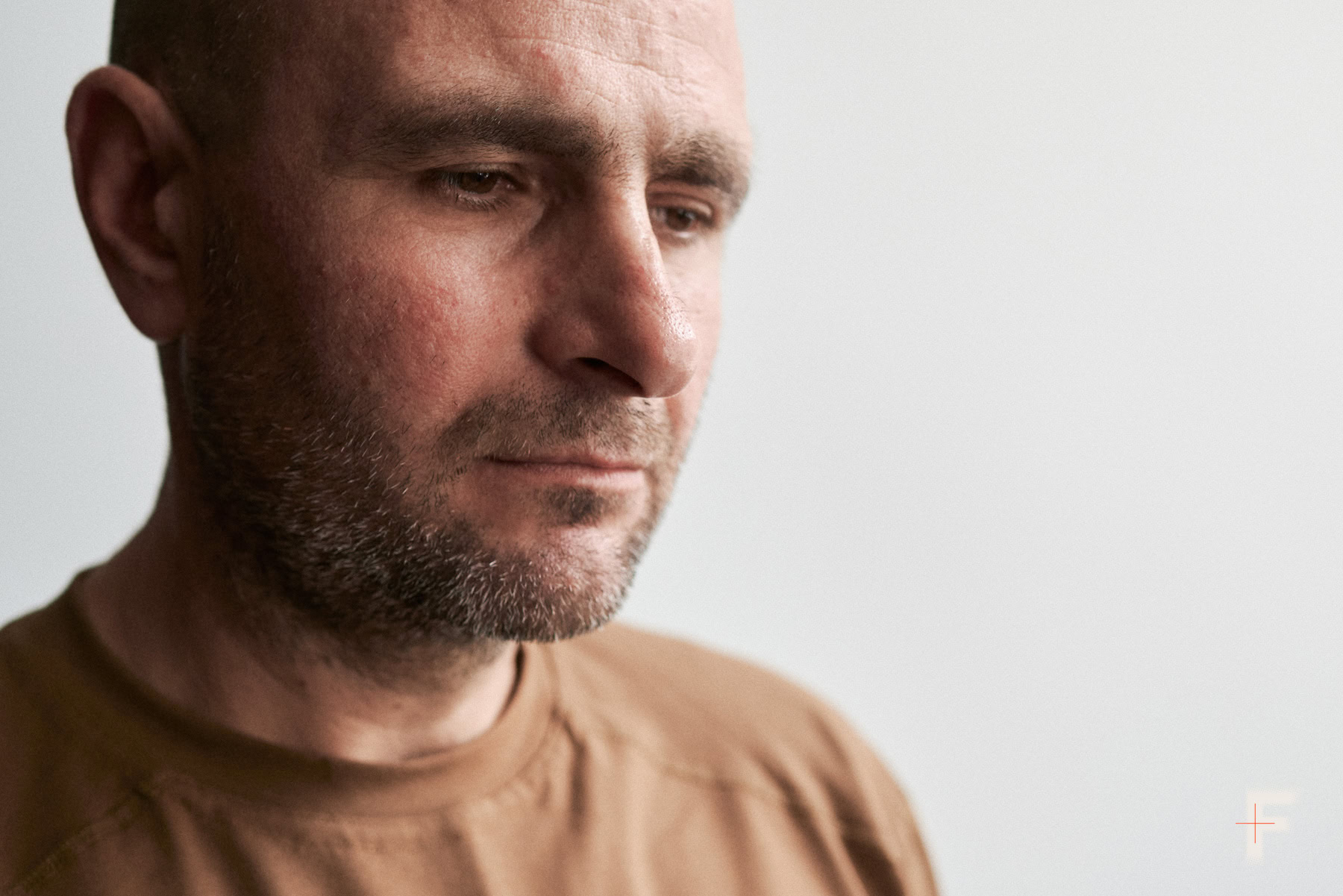

“When my father was getting ready for the prisoner exchange, the men held with him told him not to be afraid to speak the truth,” she said. “Some people think that speaking out only makes things worse for those still in captivity. But the men who came back told me that although there can be some punishment at first, it usually doesn’t last long. After that, conditions often improve. Russians tend to change their behavior when they know the world is watching.”
In memory of her father
Oleksandr used to say that when his treatment was over, he wanted to visit Latvia, a place Anastasiia often praised after her work trips. She told him how veterans and former captives were supported there, how rehabilitation programs helped people start over. He hoped the journey might help him, too. But he never recovered enough to go. Oleksandr died before their plan could come true, leaving the trip as one of Anastasiia’s most treasured memories.
She says what she values most now are the moments she had with him after his return – held in her memories and in the photos and video journalists captured of their family.
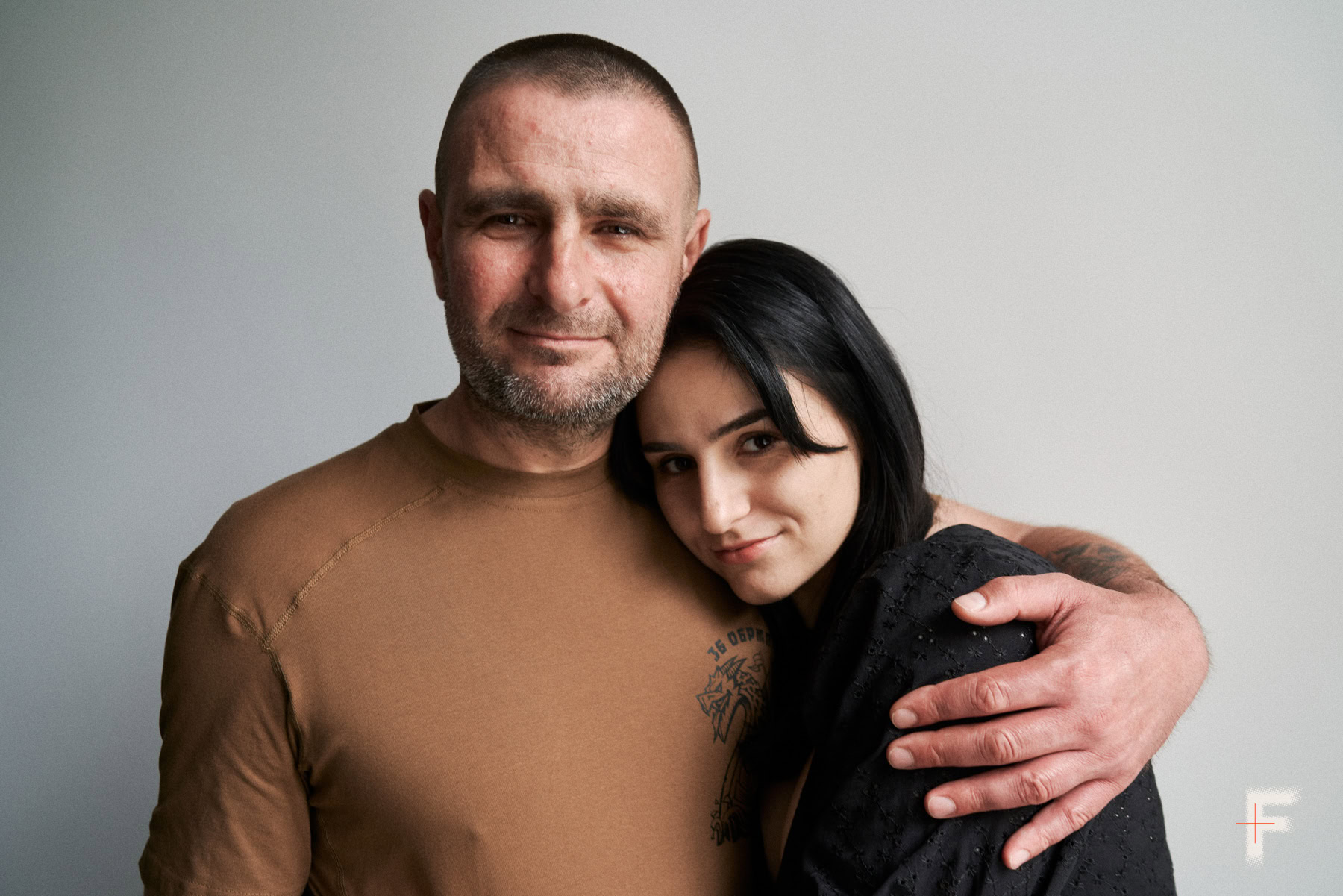

I’m grateful I got to introduce you to my father.
“You took such wonderful photos,” she said. “I was always busy, always putting it off, hoping to plan a proper shoot someday. Now these are the only photos we have. Russian guards told the men, ‘You’ll go home and your heart will feel like cloth – you’ll spend the rest of your life on medication.’ And now I understand: supporting those who return is what truly matters. That’s the real victory we can give them.”
Anastasiia believes that everyone today must speak up for those still held in Russian captivity: every missing person must be found, and the fallen must be laid to rest with honor. For her, these are not abstract words but a daily mission that drives her work. She urges everyone not to stay on the sidelines, but support families, speak about the prisoners, spread the truth, and help those returning from the war.
Тext: Artem Derkachov
Photos: Valentyn Kuzan, Tetiana Kreker
Adapted: Kateryna Saienko
